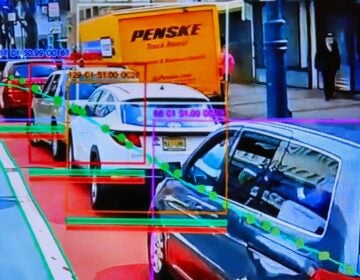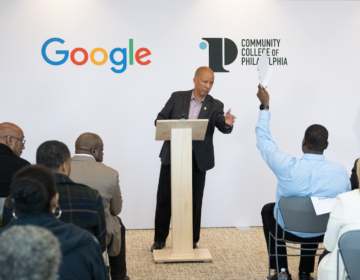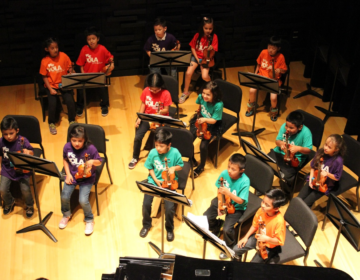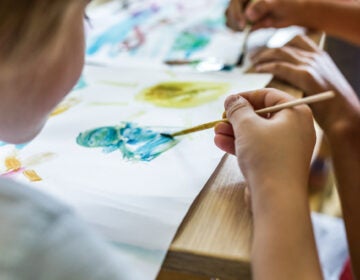Penn program offers artificial intelligence training to Philadelphia school district teachers
The PASS program is funded by a foundation supporting the integration of arts and technology into education.
Listen 0:52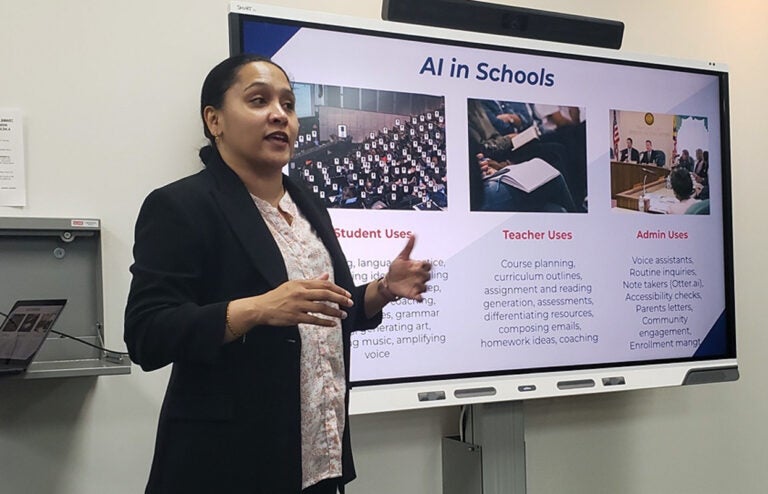
Betty Chandy, instructor for the PASS program (Courtesy of the University of Pennsylvania)
From Philly and the Pa. suburbs to South Jersey and Delaware, what would you like WHYY News to cover? Let us know!
As artificial intelligence makes its way into classrooms as a tool to assist educators, the University of Pennsylvania plans to offer AI training for School District of Philadelphia teachers and administrators.
The pilot program, Pioneering AI in School Systems, was created as a professional development initiative at Penn’s Graduate School of Education and will be free for school district personnel.
Classes started at the school district’s headquarters on North Broad Street this month.
“The digital divide is real in Philadelphia,” Superintendent Tony Watlington Sr. said. “Partnering on the PASS program will help advance academic achievement for our students by equipping our educators, school leaders and district administrators with tools needed to make sure our students graduate college or are career-ready.”
According to a 2023 national survey by the RAND Corporation and the Center on Reinventing Public Education, 18% of teachers reported using AI in their classrooms.
About 60% of school districts in the survey said they planned to start training teachers in AI by the end of the 2023–2024 school year, but urban school districts were the least likely to report such training.
The program is funded by a gift from the Marrazzo Family Foundation, led by Ellie and Jeffrey Marrazzo. The foundation is dedicated to supporting educational opportunities that develop arts and technology programming, such as expanding the use of AI in Philadelphia schools.
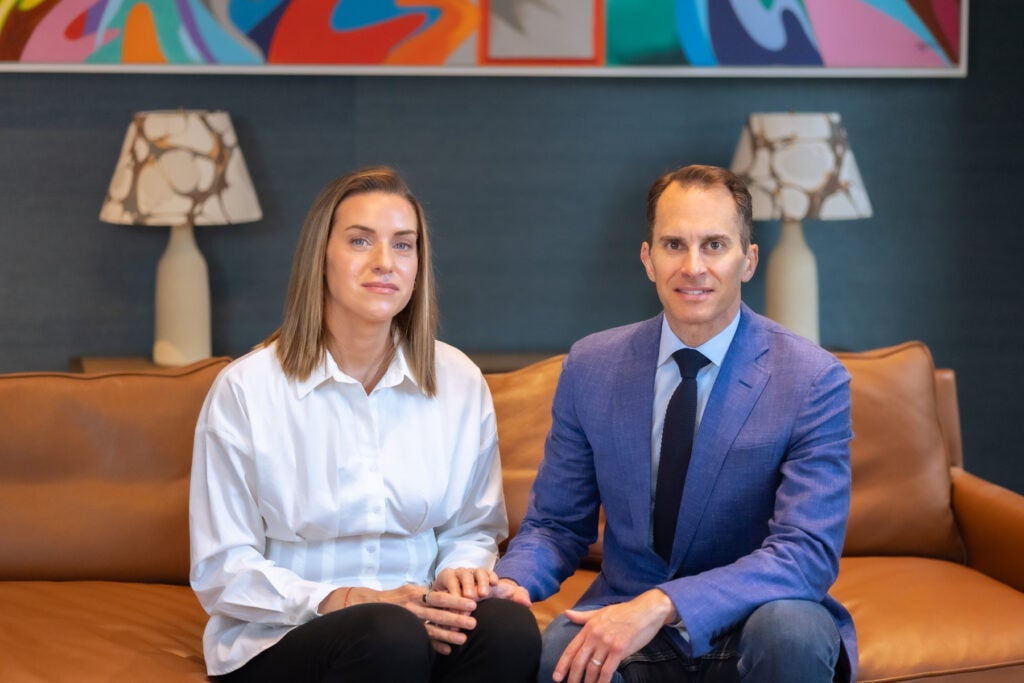
“[AI] could have a very wide set of applications, or it could have a narrower focus depending upon what the problem is that you are trying to solve, or where you see opportunity,” Jeffrey Marrazzo said. His father, William Marrazzo, is president and CEO of WHYY, Inc.
He added that the hope is for educators to take what they learn about AI and develop innovative ways to teach it to students.
Michael Golden, vice dean of innovative programs and partnerships at Penn’s Graduate School of Education, said AI has the potential for a huge impact on learning and teaching.
“We also have to focus on what happens in the classroom with the educators and how they can support their young people to build the durable skills, knowledge, disposition and values in a growth mindset to be successful in life,” Golden said.
For administrators, the Penn program will emphasize strategic planning and policy. For teachers, it will focus on practical training, including enhancing instruction and student support.
Currently, some of the most popular ways that teachers use AI in the classroom include creating quizzes, assessment tools, lesson plans and assignments, according to the RAND survey.
Betty Chandy, director of online learning at Penn’s Graduate School of Education, will be one of the instructors in the PASS program.
AI can help teachers save time on things like lesson plans, tailoring activities and creating rule books, giving them more time to interact with students, she said.
“AI can help support that, anything from creating English-related homework to brainstorming ideas for a class project for a teacher to use,” she said. “These are tasks that teachers have been doing by themselves, and it takes a lot of time.”
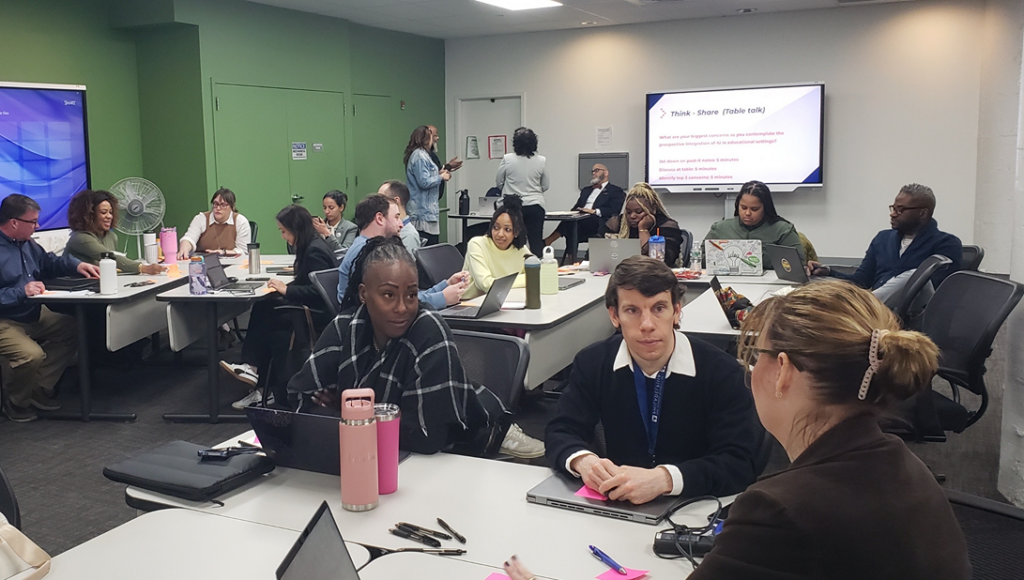
When it comes to students, “What we want to do is think about AI solutions in class to enhance teaching and learning,” she said. “You can help students amplify their own ideas. Maybe they have an idea for a game, or something else. They can take their ideas and use a generative AI tool to help move them forward.”
Integrating arts and science
The Marrazzo Family Foundation’s mission is to support the interplay between technology and the arts.
Jeffrey Marrazzo credits his success in business and science to his early exposure to the arts, saying it helped him develop better communication skills and creative approaches to solve problems — from convincing investors to buy in to motivating his corporate team.
A University of Pennsylvania graduate, Jeffrey Marrazzo co-founded Spark Therapeutics in 2013 as a start-up incubated at the Children’s Hospital of Philadelphia. As chief executive officer, he helped build Spark into an early commercial gene therapy company.
In 2019, Spark, based in University City, was acquired by Swiss pharmaceutical giant Hoffman-La Roche for $4.8 billion. Marrazzo left the company in 2022.
He said the success of Spark enabled him and his wife Ellie to formalize and amplify their philanthropic interests through the formation of the Marrazzo Family Foundation, which launched in 2022.
“When Jeff and I were coming up with the area of focus for our foundation, we homed in on experiences that we had both had in the arts in creative pursuits as children,” Ellie Marrazzo said. “We felt profoundly shaped by them. I had taken an after-school photography class at a community arts center and completely fell in love with photography.”
She pursued her passion in high school and college — earning a Bachelor of Fine Arts degree from the School of Visual Arts in New York City — and worked at magazines with professional photographers.
“From that one experience in an after-school program, it set me on a trajectory that changed the shape of my professional life. I pursued that passion as a career,” she said.
More local opportunities
In addition to bringing technological advances to Philadelphia schools with Penn’s AI project, the Marrazzo Family Foundation is focused on expanding arts and creativity opportunities for Philadelphia students.
“We want to provide opportunities for the kids of Philadelphia to also be exposed to creativity, opportunities that would give them the ability to maximize their creative potential,” Ellie Marrazzo said.
For example, the foundation has worked with the school district’s makeSPACE program, which provides workforce development for teachers, helping them use art forms, such as theater, to teach various subjects, including math, science and the arts. The intensive, multiyear training is available to teachers in about a dozen schools.
“We were working closely with the district on ways that professional development of teachers can help them think about and modify how subjects are taught,” Jeffrey Marrazzo said.
The foundation funded an additional five schools, enabling about 100 teachers to learn how to use theater, music and dance as teaching tools for subjects like science and math.
“I was fortunate to have a tremendous amount of exposure to music when I was growing up,” Jeffrey Marrazzo said. He sang in choirs at church and in school and was influenced by his mother, Randi Marrazzo, a music educator and opera singer.
“It all comes back to being able to have this great confidence in my creativity,” Jeffrey Marrazzo said. “That in particular is what we want to foster in as many kids as we possibly can.”
Editor’s Note: The Marrazzo Family Foundation is a WHYY supporter. With their help, WHYY News publishes the Creativity Sparks Success series. WHYY News produces independent, fact-based news content for audiences in Greater Philadelphia, Delaware and South Jersey.
WHYY is your source for fact-based, in-depth journalism and information. As a nonprofit organization, we rely on financial support from readers like you. Please give today.


